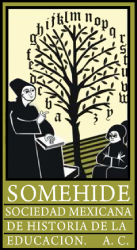“Vidas de Papel”. Modelos y prácticas de la escritura epistolar en la España contemporánea
DOI:
https://doi.org/10.29351/mcyu.v2i2.510Palavras-chave:
Historia de la cultura escrita, escritura epistolar, manuales epistolares, historia contemporánea de EspañaResumo
Una de las eternas dicotomías que se establecen en el mundo de la cultura escrita es la que tiene lugar entre la teoría y la práctica, entre la interpretación de la norma que cada persona realiza y su transgresión en función de lo que quiere comunicar y las circunstancias que el tiempo histórico le impone al escribir. Este trabajo se centra así en explorar la relación entre los manuales epistolares en la España contemporánea, en cuanto libros que difunden las normas y modelos de la escritura epistolar y los códigos sociales inherentes a los mismos, y la práctica epistolar propiamente dicha, las cartas de las personas comunes ligadas a cuatro momentos/lugares como son la emigración, la guerra, la prisión y la escuela. Cartas y libros, teoría y práctica, ficción y realidad, se convierten así en representación de un tiempo y una sociedad: la España de finales del siglo XIX y primera mitad del siglo XX.
Downloads
Publicado
Como Citar
Edição
Seção
Licença
Copyright (c) 2006 Verónica Sierra Blas

Este trabalho está licenciado sob uma licença Creative Commons Attribution-NonCommercial 4.0 International License.







